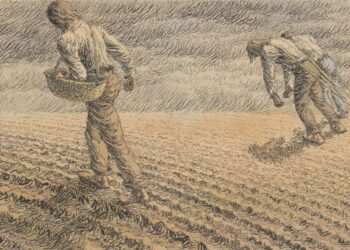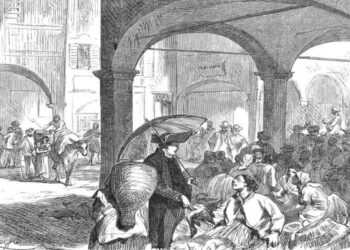Over the last 30 years, the number of people who control the business that shapes our lives has become smaller. It is no surprise that people say they do not influence their workplace, business, and the economy. However, cooperatives offer a solution. From the outside, they may look like any other business, but inside they are very different. They are owned and controlled by the people closest to the business, such as employees, customers, residents, suppliers, and not distant shareholders. They have an equal say in how the business is run and can even decide what to do with the profits.
Cooperatives are found in every sector, from high street retailers to farmers’ controlled businesses. They contribute 37 billion pounds each year to the British economy and help to boost productivity, innovation, and entrepreneurship. Cooperatives contribute to more than 100 million jobs worldwide. Also, agricultural cooperatives help farmers raise the funds needed to produce more food and increase their profits.
Principles Of Cooperatives
The principles of a cooperative are its distinctive factors from other types of organizations. Now, let’s look at some of the principles that govern the co-ops.
Voluntary And Open Membership
Cooperatives are about accepting other people and allowing them the opportunity for something they might not have otherwise enjoyed. So, it gives everyone the opportunity to be part of something bigger than themselves and actually contributes to its success.
Democratic Member Control
Here, you won’t find one dictator making all the decisions. All of the members of a cooperative are equal despite the amount of money they chip in. All the decisions are made by the group and for the group.
Member Economic Participation
A Cooperative is a group of people coming together to pull resources for the common good of all.
Autonomy And Independence
Every cooperative is a unique organization. Some needs and values speak to them more than others, and everyone’s a little different. There, you will find all types of characters working together and independently for a common purpose. The members can be themselves not just as individuals but also as an institution.
Education, Training, And Information
Cooperatives want their members to thrive and be successful, and education is such a big part of that. They are always trying to educate their members and others on financial matters.
Cooperation Among Cooperatives
One person can’t make up a cooperative. There needs to be cooperation among the members and other cooperatives to boost
Concern For The Community
Cooperatives are locally based institutions and work together to ensure the communities prosper and grow.
Food Security And Reducing Poverty
Co-ops are at the forefront of fighting world hunger and poverty. More than 700 million people are cooperative members, and they create about 100 million jobs. It gives farmers and growers the opportunity to be independent and key stakeholders in the global economy.
In rural areas, farmers’ cooperatives help to reduce the level of poverty and hunger by providing growers with the funds needed to grow their crops. However, the farmers still lack lots of equipment and techniques that will help them increase crop yield.
Cooperatives help to extend the networks of small farmer-owners by connecting them with global food markets. Now, they no longer have to have to work individually but can connect with other cooperatives to ensure progress and profits for all. In this scenario, small farmer-owners can benefit from being part of a bigger group. They are able to get better terms and prices from contracts.
It provides smallholders with more bargaining power and influence in their local and global markets. This is very important for them to be able to make profits without increasing the prices of their products. Increased profits can also help smallholders start investing in more sustainable forms of agriculture, which will decrease the pollution to the environment. For example, they could invest in a Crop Monitoring platform that will provide farmers data on weather forecasts, crop health, soil moisture levels, and much more using satellite images and remote sensing. All of this information can help them make better business-decisions and also increase their crop yield.
Cooperatives also significantly encourage the integration of women into decision-making and leadership positions because every member has influence that could make a difference. It is a medium for women to contribute ideas and make an impact on communities. Co-ops can also provide them with the resources needed to scale their businesses.







